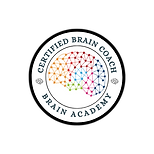From Breakdown to Brain Gains: The Role of Fitness in Recovery
- Luke Bohnenberger
- Sep 18, 2025
- 2 min read
I was always a gym rat. The gym wasn’t just a hobby, it was therapy, identity and a passion all wrapped into one. I thrived on routine, lifting heavy, tracking workouts, watching my body transform. I loved pushing my limits and seeing how far I could go under the barbell, or just in life. The gym was my second home and I never left without a goal in mind.
The day of my accident? I was on my way to the gym.
One second. One decision to unbuckle my seatbelt just minutes before I reached my destination and everything changed. I woke up in a hospital, not with sore muscles from deadlifts, but with a brain injury that left my future uncertain. I had lost 50 pounds the first week in the ICU. My muscles and confidence were all gone. My body didn’t feel like my own and every time I started to gain traction, I’d land in the hospital again due to surgeries or infections.
It wasn’t just frustrating, it was defeating. For four years, it felt like every step forward got wiped out by another setback.
But I kept showing up and let me tell you why.
Why the Gym Became More Than Just Physical
In the beginning, I was chasing what I had before. My size. My strength. My identity, but something shifted. I realized I wasn’t just rebuilding muscle, I was rebuilding my brain.
Each workout was changing something inside me. I felt more alert. More clear-headed. More motivated. And it turns out, that wasn’t just in my head.
BDNF: The Brain’s Best Friend
When you move your body whether you’re walking, lifting, or pushing a sled, you release a powerful brain protein called BDNF (Brain-Derived Neurotrophic Factor).
Here’s the cool part:
BDNF helps your brain grow new connections and repair damaged ones. It boosts memory, focus, mood and cognitive resilience. If you’re recovering from a brain injury, BDNF is your best friend. Movement fuels neuroplasticity and neurogenesis which is your brain’s way of rewiring and healing.
Creatine: More Than a Muscle Supplement
I used to think creatine was just for building muscle, but once I started learning the science, I saw how it could actually fuel brain cells, not just muscle. Creatine supports energy production in your brain, improves focus and helps with mental fatigue which is something most brain injury survivors know all too well.
Adding it to my stack made a real difference in my recovery.
Tips for Survivors Starting Their Fitness Journey
Start small. A short walk or light resistance band workout is enough to begin building momentum. Don’t chase intensity, chase consistency.
Get outside when you can. Sunlight helps regulate mood and boost dopamine.
Consider adding creatine (ask your doctor first).
Keep a log of how you feel after workouts, mentally and physically.
You’re Not Just Lifting Weights. You’re Lifting Yourself.
Movement is medicine.
If you're on a recovery journey, I encourage you to move, not just to heal your body, but to help your brain recover too.
One rep at a time. One day at a time.
You're stronger than you think.









Comments